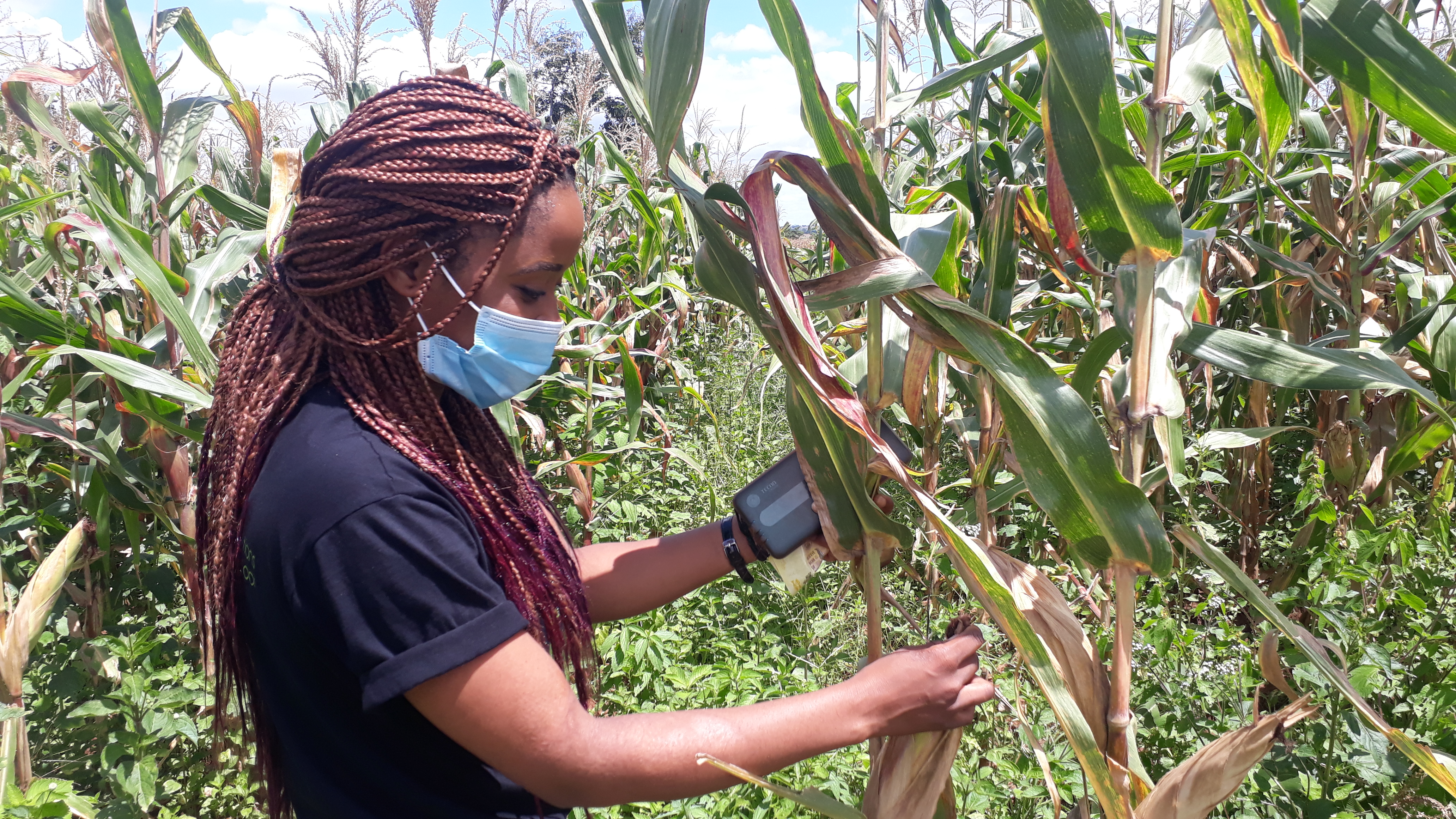December 16, 2021
Post-Harvest Loss Innovation Lab kicks off $1M Food for Education project in Malawi
 |
A field facilitator from Lilongwe University in Malawi inspects maize in one of the newly planted school gardens. |
The College of Agriculture's Feed the Future Innovation Lab for the Reduction of Post-Harvest Loss has signed a $1 million subaward agreement with Nascent Solutions for a U.S. Department of Agriculture-funded McGovern-Dole International Food for Education and Child Nutrition project in Malawi. The lab and the Malawi project are led by Jagger Harvey of Kansas State University's plant pathology department.
A USDA-Foreign Agricultural Service program, the McGovern-Dole International Food for Education and Child Nutrition Program helps support education, child development and food security in low-income, food-deficit countries around the globe. The program provides for the donation of U.S. agricultural commodities, as well as financial and technical assistance, to support school feeding and maternal and child nutrition projects. USDA, similar to USAID, is a Feed the Future implementing agency of the U.S. government.
Nascent Solutions was awarded $22 million as the lead on this overall program in 2019, paving the way for the innovation lab to enter the project after two years of impactful work and discovery. With a program goal of reaching 65,000 students and 498,000 indirect beneficiaries in Malawi, it has so far reached and benefited 61,860 learners — more than half of which are young girls — in six districts and established 61 school gardens and three communal gardens. The overarching program objectives are to improve literacy of school-age children and increase the use of positive health and dietary practices. The K-State-led team now builds upon successes of the first two years of the project and can enhance in-country research capacity, characterize postharvest loss drivers, fast track any technologies and extension materials to reach target beneficiaries.
The Innovation Lab for the Reduction of Post-Harvest Loss team will lead a set of postharvest and school feeding improvement activities that address key components in the McGovern-Dole Results framework and USDA's learning agenda. Expert collaborators from across multiple disciplines and institutions will contribute to this work. The project team includes K-State's John Leslie, university distinguished professor of plant pathology, and Brian Lindshield, associate professor of food, nutrition, dietetics and health; Limbikani Matumba of Lilongwe University of Agriculture and Natural Resources in Malawi; George Opit of Oklahoma State University's entomology department; and Andreia Bianchini of University of Nebraska's food science and technology department. The Post-Harvest Loss Innovation Lab's Management Entity team provides further support and contributions: Jessa Barnard, assistant director; Catherine Hickman, fiscal analyst; and Mamadou Thiam, program coordinator. Other collaborators include the Mars Global Food Safety Center and the University of Georgia's Peanut Innovation Lab.
The innovation lab project activities include:
- Establishing a mycotoxin — toxic fungal metabolites contaminating food supplies — research platform at LUANAR.
- Conducting a baseline assessment to identify postharvest issues along the Food for Education in-country value chain, related to proper drying and storing of stored product crops — e.g., maize, soy, sorghum, pigeon pea, etc.
- Identifying and sensitizing key stakeholders on evidence-based mitigation strategies, handed over as integrated intervention packages — technologies and training programs — through extension support to students, PTA members, farmers, government and other stakeholders.
- Enhancing capacity of the local university partner and rallying national stakeholders around these solutions.
The project is quickly gaining momentum, with a positive, forward-looking meeting with the Malawi Ministry of Agriculture in late November. The U.S.-based project team is poised to conduct site visits as soon as possible, with Professor Matumba pushing forward in the meantime.
